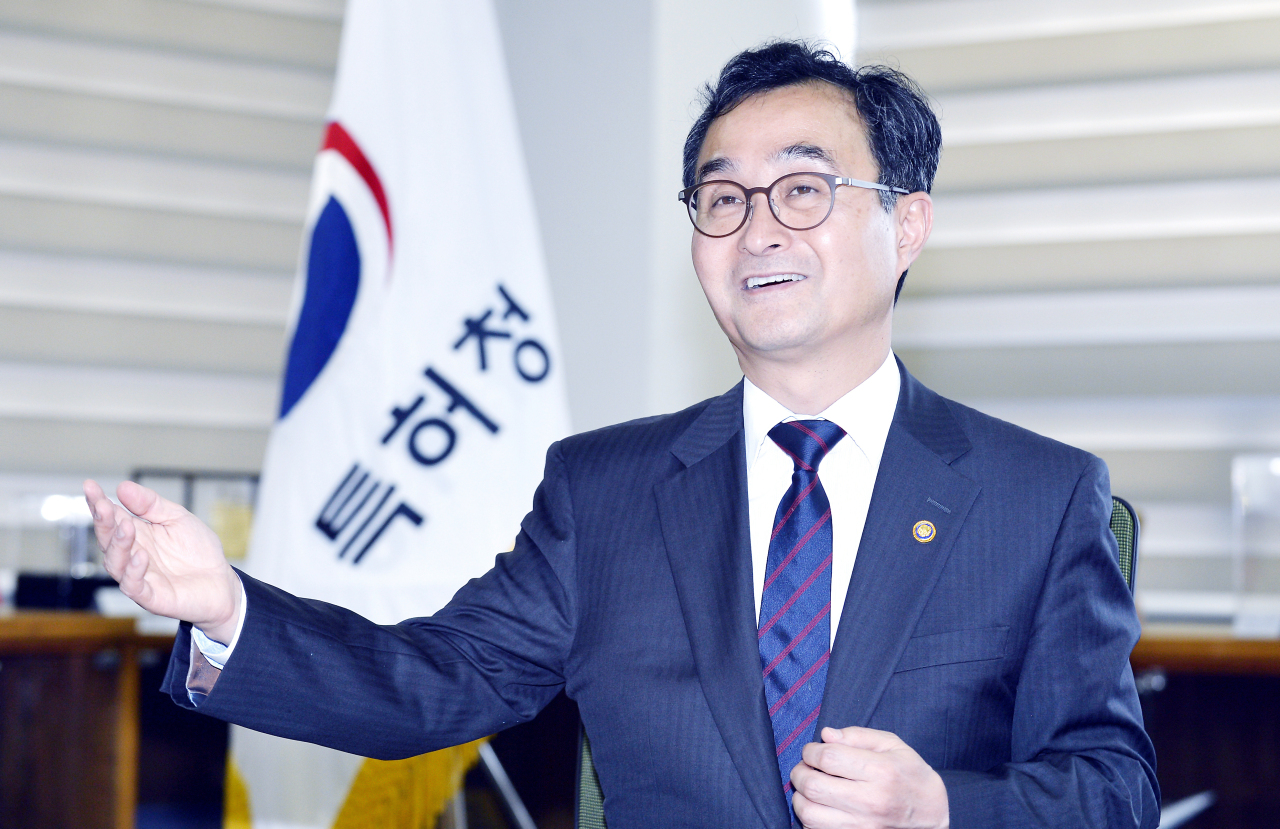[Herald Interview] ‘Korea should expedite knowledge-based assets development’
By Kim Da-solPublished : Nov. 14, 2019 - 16:28
Amid the tough business environment and deteriorating trade situation following worldwide conflicts, South Korea should expedite the development of knowledge-based assets and increase independence in related technologies to compete globally, according to the intellectual property office chief.
“Advanced countries have been bolstering their industry dominance based on knowledge-based assets. Especially, a growing number of foreign companies have been preoccupying patents that are closely related to semiconductors and display technologies,” Korean Intellectual Property Office Commissioner Park Won-joo said in an interview with The Korea Herald.
“Advanced countries have been bolstering their industry dominance based on knowledge-based assets. Especially, a growing number of foreign companies have been preoccupying patents that are closely related to semiconductors and display technologies,” Korean Intellectual Property Office Commissioner Park Won-joo said in an interview with The Korea Herald.

He stressed that it is important for the government to prepare strategies for knowledge-based assets, as Korean firms often times face difficulties in the industrial use of IP in the global market.
As part of the effort, Park said KIPO has released a set of measures to support local industries by offering some 430 million points of patent-related big data, which includes research and development trends and information on the country’s five major industries, including bio health and secondary batteries.
This will allow businesses to learn to avoid competitors’ patent and come up with new research direction to increase rate of success and shorten the research period.
“KIPO in particular plans to focus its support for small and midsized enterprises to help them secure their own technology. We will offer alternative technology information of local and foreign companies which we have gathered through patent analysis to help domestic firms diversify their supply chains,” Park said.
Park added that KIPO will also establish an artificial intelligence-based patent big data center to promote use of big data.
KIPO also plans to expand the capital cap of knowledge-based assets to 2 trillion won ($1.71 billion) by 2022, so that the companies can more freely receive investments in the sector of knowledge-based assets.
“We are going to revise regulations that deter venture capitals from investing so they can even own knowledge-based assets. We will support innovative startups with creative ideas and help them secure global patents and grow into global companies,” said Park.
Park added that KIPO will expand the startup support by offering business consulting on innovative patents in cooperation with patent examiners and market insiders.
According to the agency, it provided counsel for intellectual property disputes of Korean firms overseas for 7,590 cases last year, up from 6,841 in 2016.
Along with supportive measures, KIPO is also enhancing its enforcement measures.
Park stressed that KIPO aims to innovate on knowledge-based assets infrastructure and establish fair competition rules.
“We will revise the punishment for patent infringement to stop companies from stealing technologies and better protect the knowledge-based assets of innovative companies,” said Park.
By Kim Da-sol and Lee Kwon-hyung
(ddd@heraldcorp.com) (kwonhl@heraldcorp.com)







![[KH Explains] How should Korea adjust its trade defenses against Chinese EVs?](http://res.heraldm.com/phpwas/restmb_idxmake.php?idx=644&simg=/content/image/2024/04/15/20240415050562_0.jpg&u=20240415144419)











![[Today’s K-pop] Stray Kids to return soon: report](http://res.heraldm.com/phpwas/restmb_idxmake.php?idx=642&simg=/content/image/2024/04/16/20240416050713_0.jpg&u=)